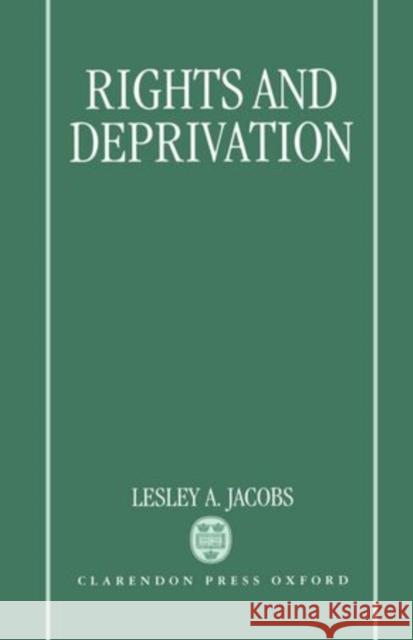Rights and Deprivation » książka
Rights and Deprivation
ISBN-13: 9780198277675 / Angielski / Twarda / 1993 / 240 str.
In this book Lesley Jacobs challenges the view, now prevalent in North America and Western Europe, that the primary function of a nation's social policy should be to provide support only for the poorest people instead of social services accessible to all its citizens.In an interesting and distinctive argument he develops and defends the idea that access to basic rights such as education, health care, adequate housing, and income support can provide a solid moral foundation for redistributive state welfare programmes, maintaining that any nation which purports to take rights to basic liberties seriously must also be fully committed to the principles of the welfare state. Dr Jacob's thesis addresses a pressing political and philosophical problem at the heart of the policies and structure of the modern state.
In this book Lesley Jacobs challenges the view, now prevalent in North America and Western Europe, that the primary function of a nation's social policy should be to provide support only for the poorest people instead of social services accessible to all its citizens. In an interesting and distinctive argument he develops and defends the idea that access to basic rights such as education, health care, adequate housing, and income support can provide a solid moral foundation for redistributive state welfare programmes, maintaining that any nation which purports to take rights to basic liberties seriously must also be fully committed to the principles of the welfare state. Dr Jacob's thesis addresses a pressing political and philosophical problem at the heart of the policies and structure of the modern state. His justification of the redistribution of resources will be of particular interest to political philosophers, lawyers, and social policy analysts.











